Backstage in August
all about real and imaginary places where you might discover music
I am listening to …
the soundtrack of a video game: Ori and the Blind Forest1. I am late to the gaming scene and have still never played, but it is so much fun to dive into this music for a bit.2 The score is quite something, and as imaginative as the storyline and visuals.
British composer Gareth Coker describes both Blind Forest and the follow-up game Will of the Wisps as a “composer’s dream.”
“A lighter script makes your work more exposed, for better or worse! These were gifts for me to work on: games that are striking in terms of visuals and animation, with a simple but well-executed story. Not having to compete with dialogue really gives maximum opportunity for visual storytelling.” 3
Coker likes to include unusual or lesser known instruments. For Ori, he worked together with musician Kristin Naigus, who owns and plays hundreds of woodwind instruments. The soundtrack for Will of the Wisps includes up to 20 of these, including the mystical-sounding crystal flute and the deep, ghostly fujara. Even the humble recorder makes an appearance.
I am looking at …
this glorious and accidental concert venue in Geneva. United Strings of Europe had been looking for an affordable rehearsal space and stumbled across this one: a small immersive cinema at the Jardin des Nations. The owners were happy for USE to use it in exchange for an open dress rehearsal for the local community. The result was a friendly, relaxed and very happy concert, surrounded by Lake Geneva and the Alps.
This is a great example of literally thinking and searching outside the proverbial box and exploring unconventional spaces, bringing with it the connections to new audiences.
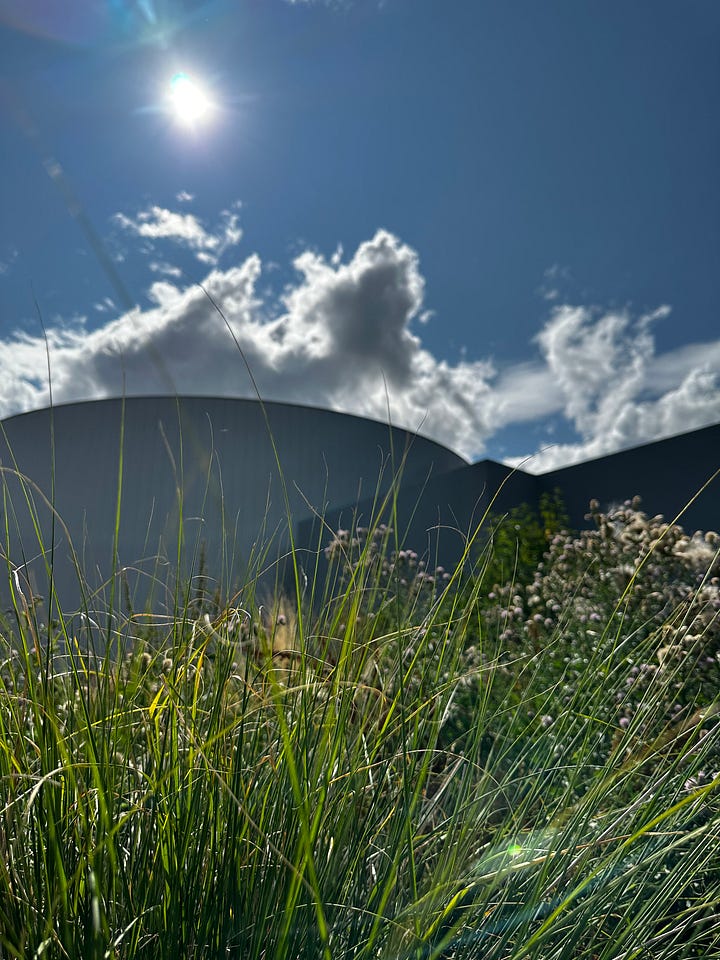
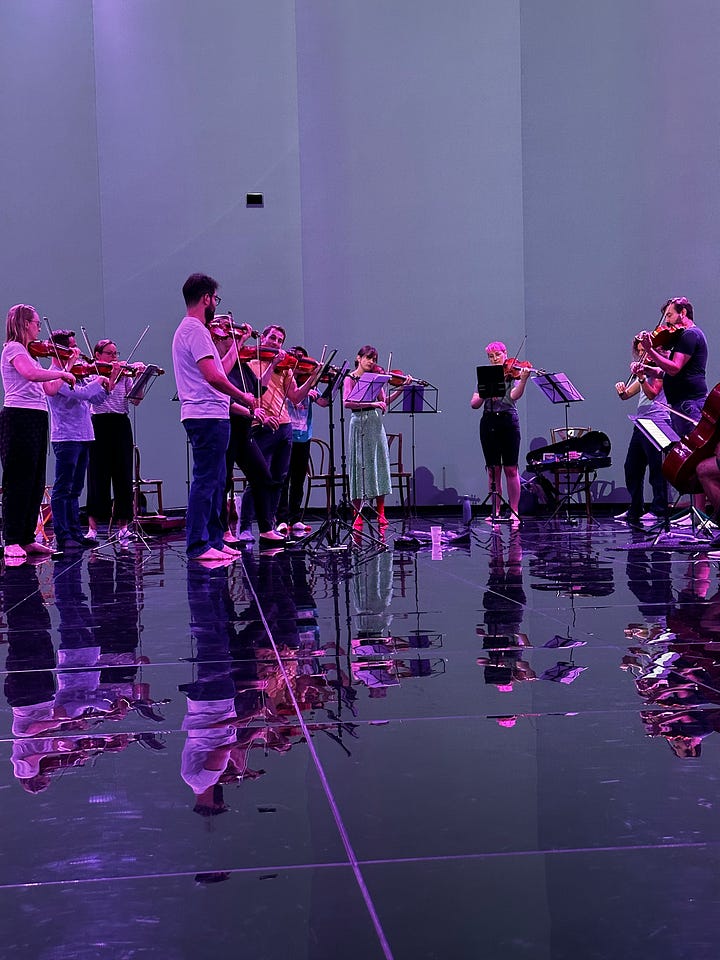

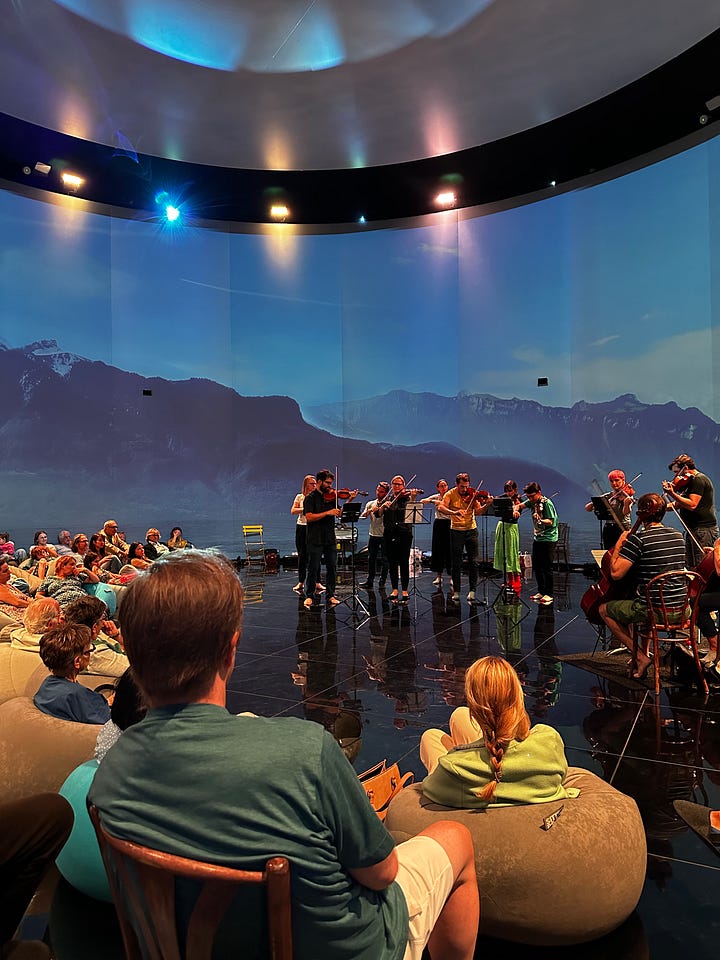
I am thinking about …
a shop front for classical music - let’s call it a concept store.
I recently came across this article by Matt Belcher about the subject, which reminded me of a long conversation with a friend of mine about exactly that topic. It is actually one we pick up and revisit from time to time, because like Matt, we think there might be some good ideas hidden behind the facade.
Imagine a space where you can listen in on rehearsals, meet an artist, get up close to an instrument you never quite knew how it actually worked. Watch videos, listen to singles, be immersed in some spacial audio and video, buy a drink, download what you just heard, and get tickets to concerts…. Endless options and possibilities, and some far less outrageous than one might think.
We went as far as checking out a space that had been earmarked by a London council for ‘something art related’, but the costs, the fitting out (including sound-proofing) and the running of such a space looked quite prohibitive, as was the actual counterproductive semi-hidden position of the space.
The ‘Oxford Street’ approach with a reasonably high footfall is a must if we want to reach as many people as possible, to get them through the door, and excited about classical music; people who would otherwise never think of going to Wigmore Hall, Kings Place or a Symphony concert at Cadogan Hall, let alone a recital in a church, mainly because these venues still present a seemingly high threshold of entry. For example, the audience at the very traditional looking Wigmore Hall has little diversity, and a very ‘silver’ audience. Kings Place, London, cannot overcome its office building vibes, and a church is a church is a church, which leaves many people with no idea of what kind of amazing gigs are happening inside.
So, would such a store make a difference? Would it help sell concert tickets?
You'd hope it might, as new audiences effectively get to try before they buy, gaining confidence around a product that is otherwise unfamiliar to them. But frankly, who knows. If we don’t try, we’ll never know. (Matt Belcher)
So, if you happen to have some money, dabble in classical music already (Apple?), enjoy 3D/object-based surround sound and other immersive technology (which we would definitely try out in a space like this) and think this is a worthy cause, get in touch! Because where would we be if musicians stopped playing, and composers stopped composing?
and I like …
Through the Noise’s Pub residency in East London. These guys are curating their vision of the future of classical music: informal crowdfunded events featuring international soloists in clubs.
The Pub residency offers five festival-style gigs in the beer garden of The Speakeasy, Dalston, presenting cross-genre artists performing music inspired by Western European, West African, and South American classical music.
You can still catch a gig at the end of August and in September, but do check out their whole upcoming season in London and elsewhere in the UK, as well as their independent London music guide.
Thanks for reading, see you soon!
Kirsten
PS There is a lot of reading, listening, research and travel involved in my line of work; I stumble across many interesting things and ideas I can't just leave behind so I decided to write about them and share with you.
Ori is a young guardian spirit who lives with his adoptive mother Naru in the forest of Nibel. After a catastrophic storm withers the forest and leads to the death of Naru, Ori goes on a mission to find the elements of Water, Warmth and Wind to restore the forest, and meets many friends and foes along the way.
Last year a Game Music Festival was held in London at the Royal Festival Hall with music from Ori, played by the London Philharmonia Orchestra. For more game music related content check out the Sound of Gaming podcast on BBC 3 (available only in the UK)
Forbes.com


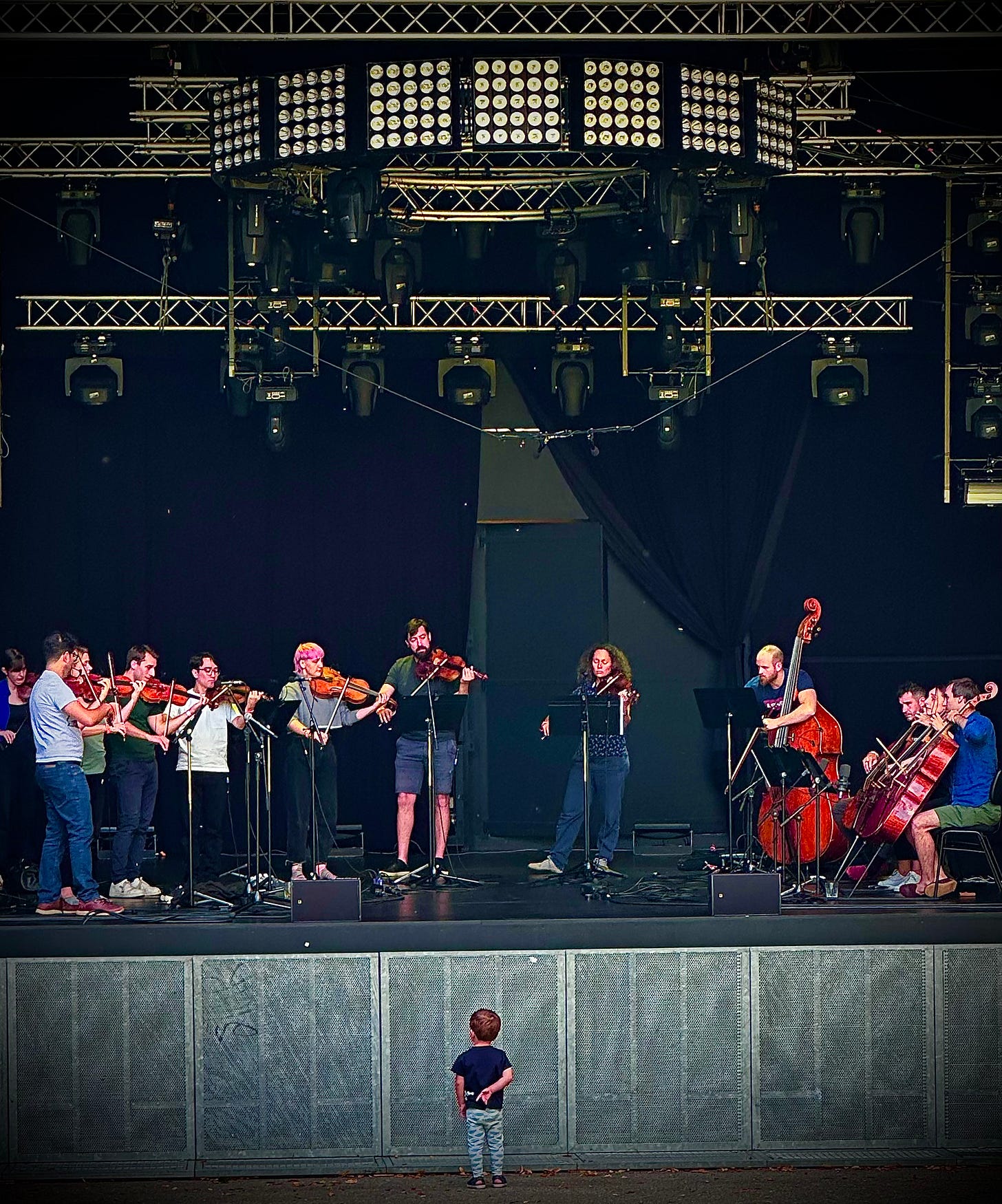
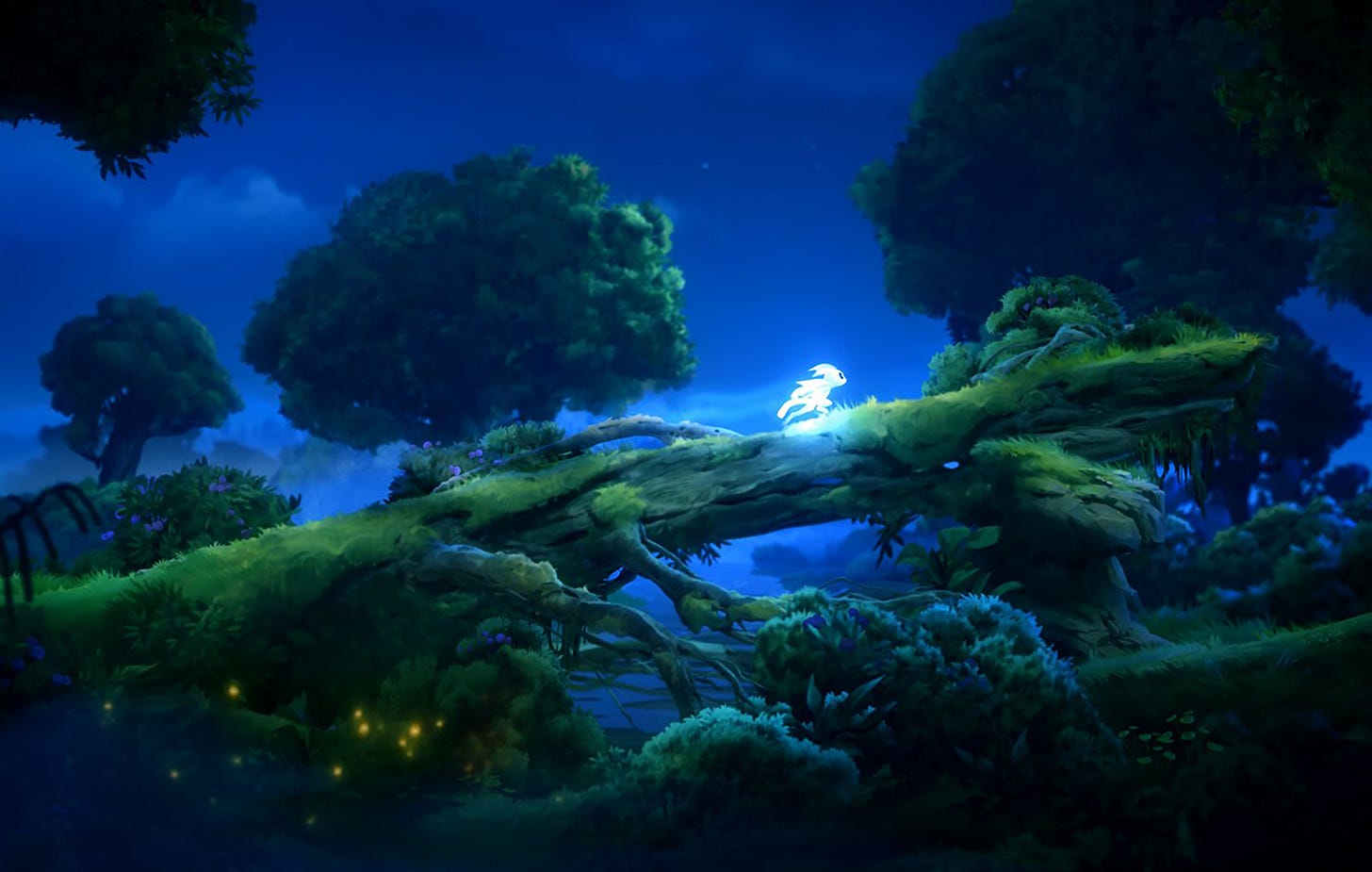
A shop for classical would be a beautiful place for people to find refuge from the craziness ess of modern life. I could see a tight-knit tribe of music and arts lovers calling it home.